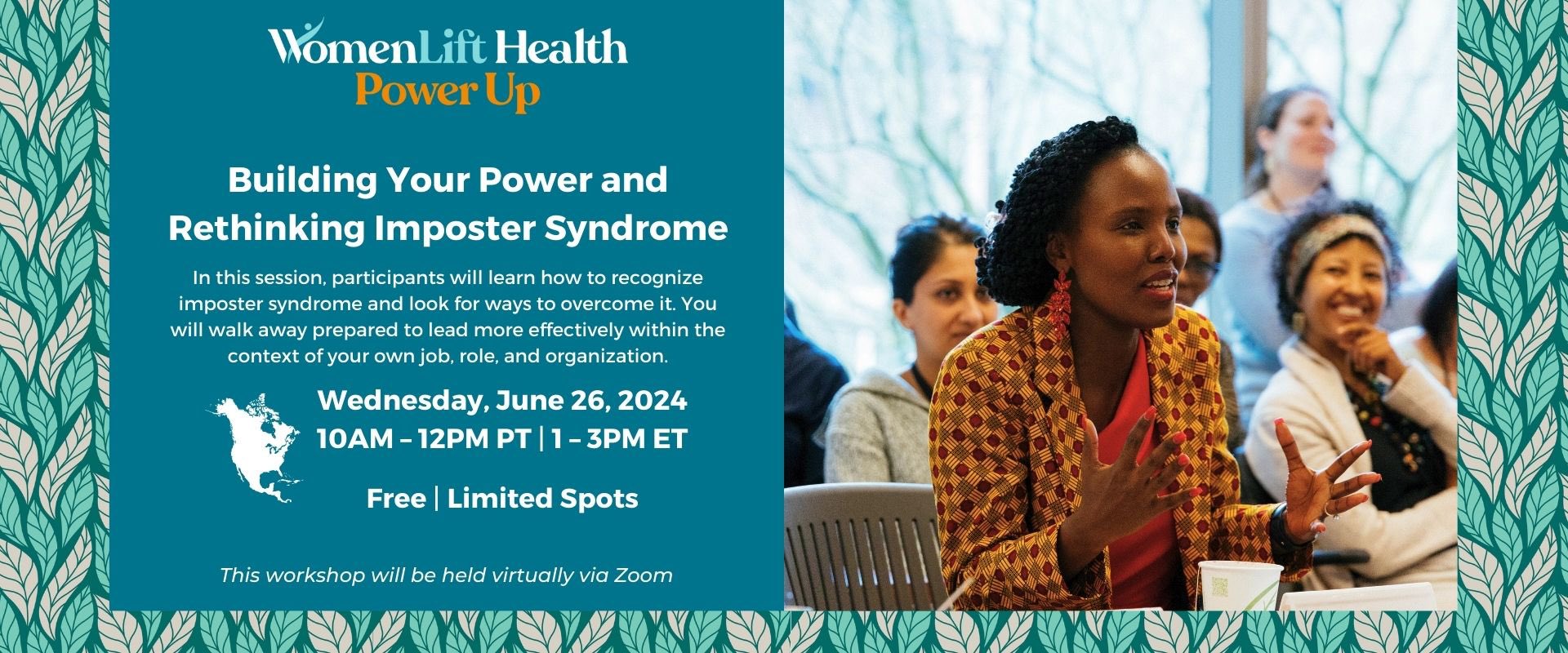
Facilitor: Kim Moriyama, Center for Creative Leadership
Impostor syndrome was first identified in 1978 by two psychologists, Pauline Clance and Suzanne Imes. In a study of female academics, they found that many women felt that they weren’t deserving of their accomplishments. Dr. Valerie Young, author of The Secret Thoughts of Successful Women, believes that women in minimize their success and because they tend to fear being “found out.”
In 2021, WomenLift Health developed a discovery report that surveyed the experiences of women leaders in East Africa, North America, and South Asia. Our report found that 42% of North American women classified “lack of confidence” as a top barrier to advancing into leadership positions. While building confidence often occurs over time, identifying ways to mitigate self-doubt in building confidence remains an ongoing challenge. As revealed in the report, women and women of color often wait for others to see their potential, while their male counterparts apply a “go for it” attitude regardless of qualifications. Women often undersell their qualifications and must be encouraged to recognize their value and contributions. Recent publications also argue that imposter syndrome is not an innate feeling that women are born with but in fact it is the result of facing repeated exclusion and systemic bias. While we must collectively hold the system accountable, those of us who experience imposter syndrome also need strategies to counter it. We believe in the expertise, talent, and capacity of women leaders and we look forward to advancing your leadership and learning from your experience!
This Workshop
This interactive session will help you define and address imposter syndrome and work with others to identify potential gaps to improve your confidence.
You are eligible for the workshop if you meet all of the following criteria:
- Identify as a woman
- Live and work in North America (U.S. and Canada)
- Are a mid-career global health professional*
In this two-hour workshop, you will:
- Recognize imposter syndrome and look for ways to overcome it
- Focus on learning from the specific experiences that are highly relevant
- Identify experiences that will prepare you to lead more effectively within the context of your job, role, and organization


